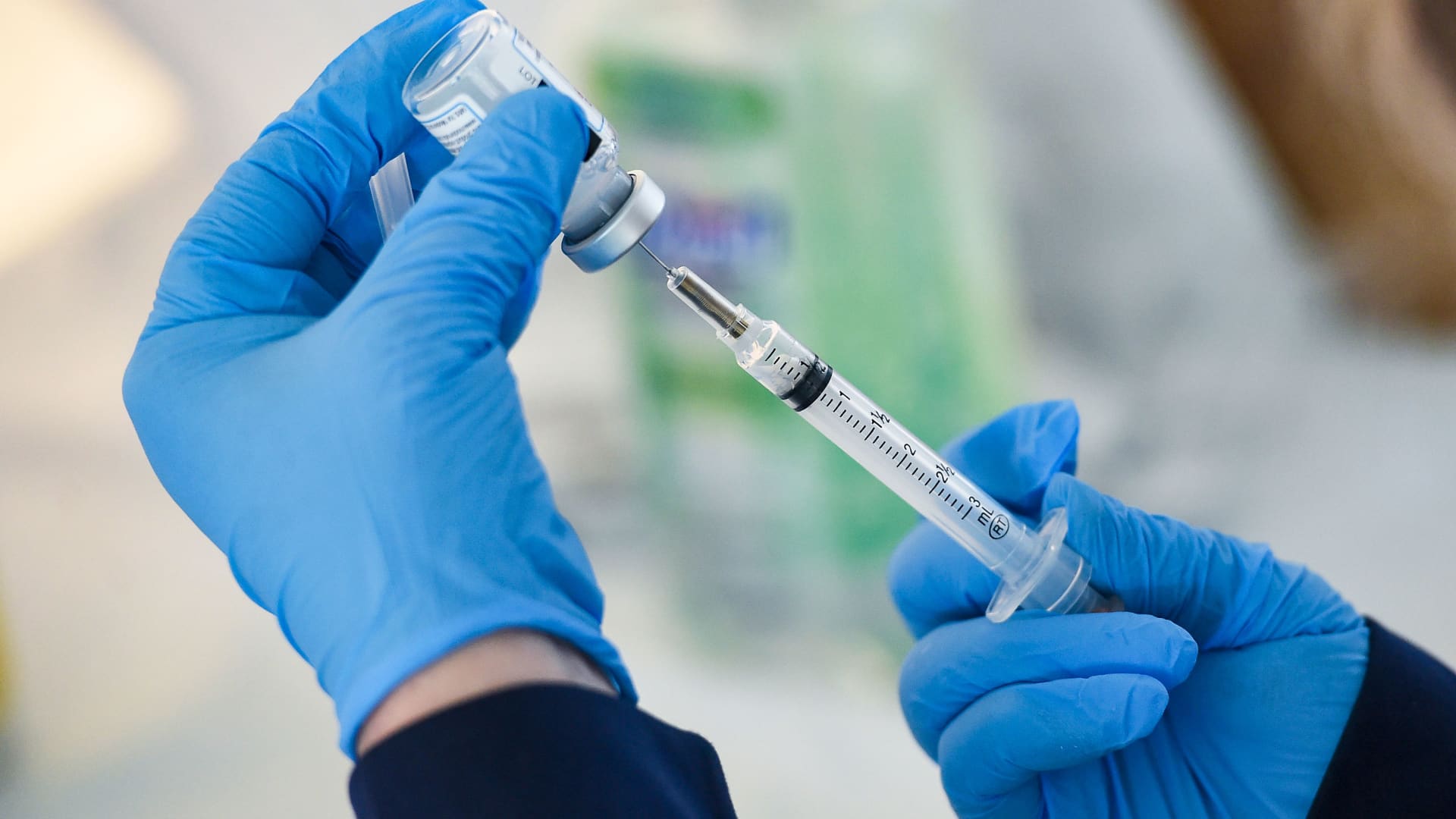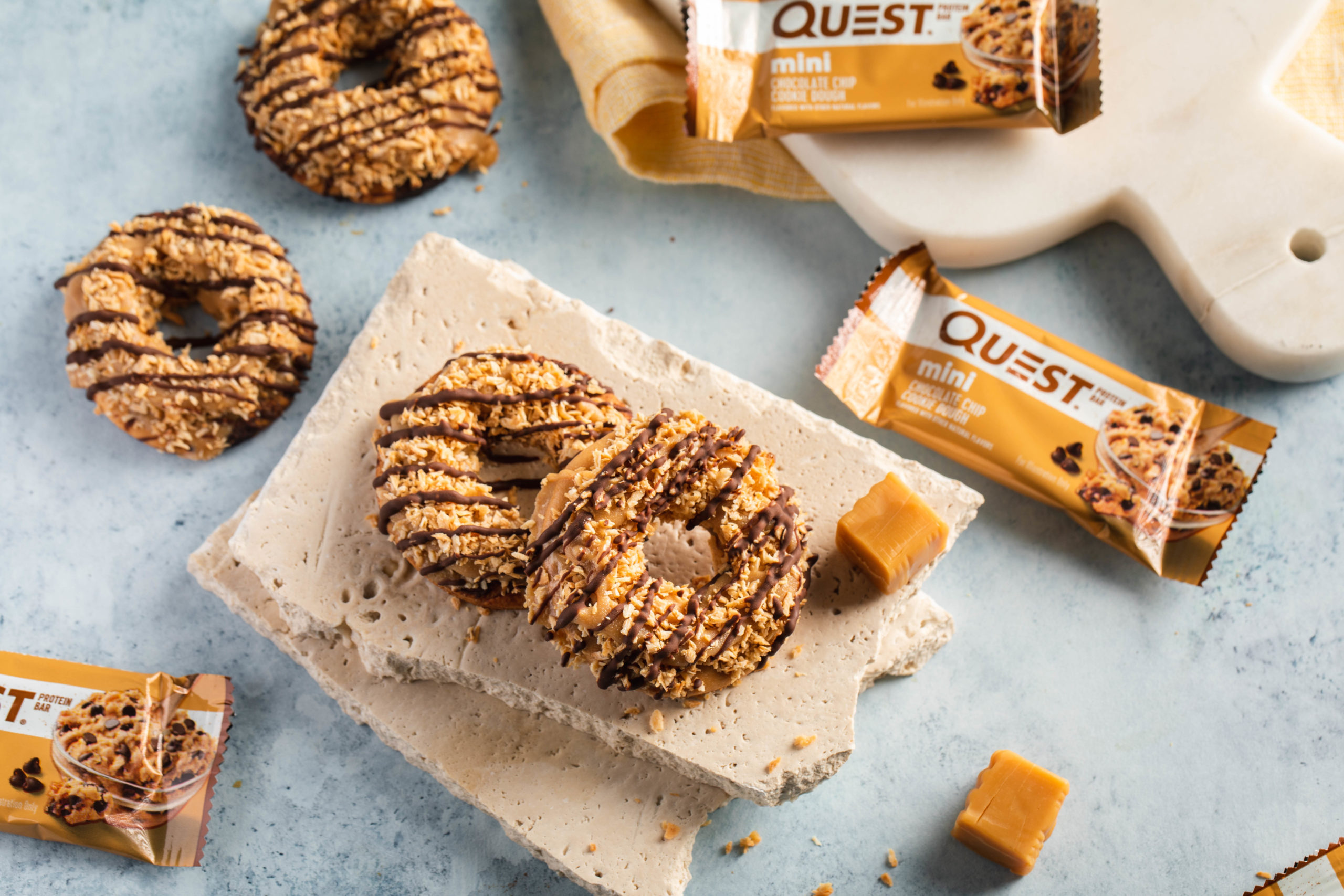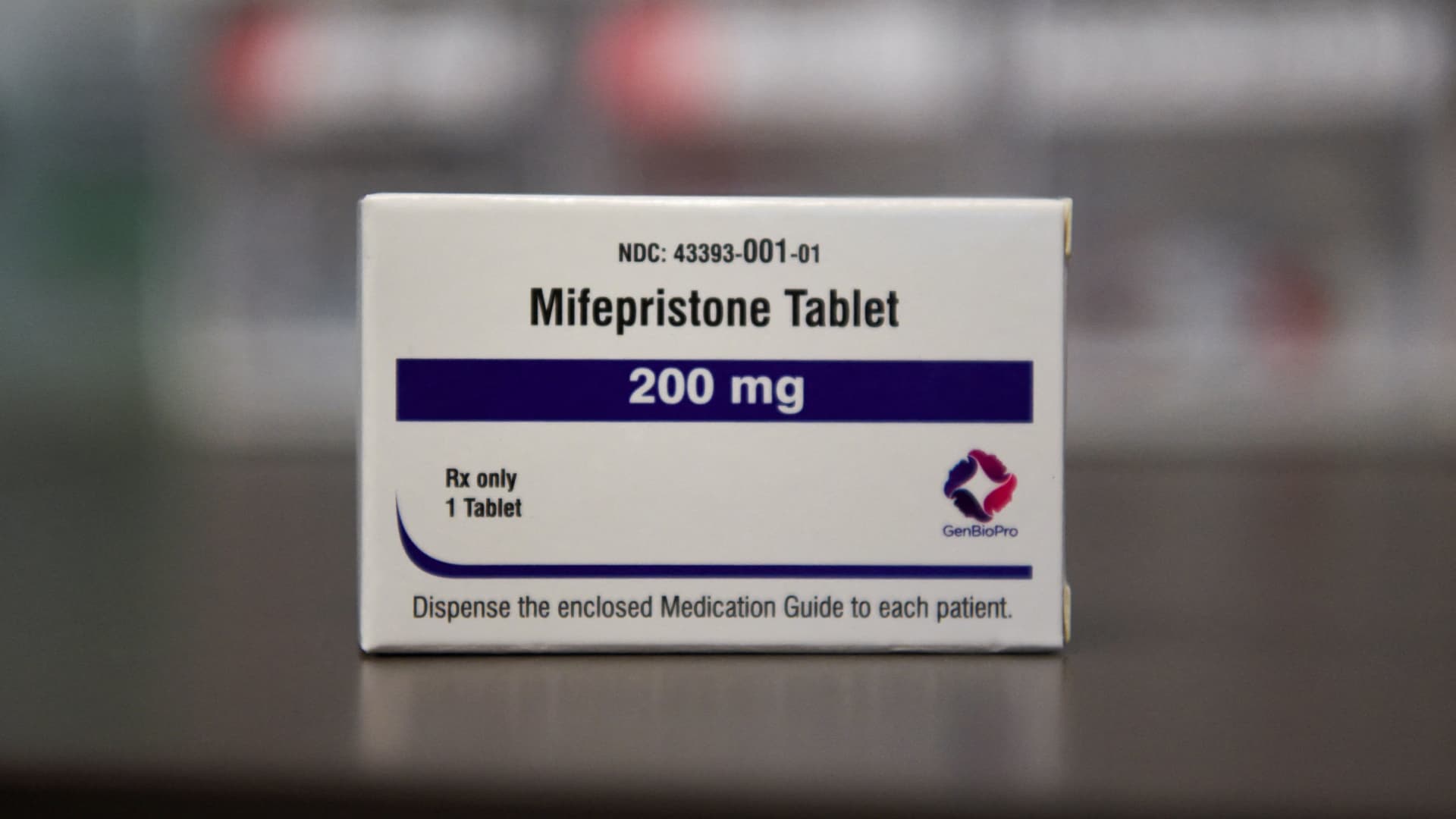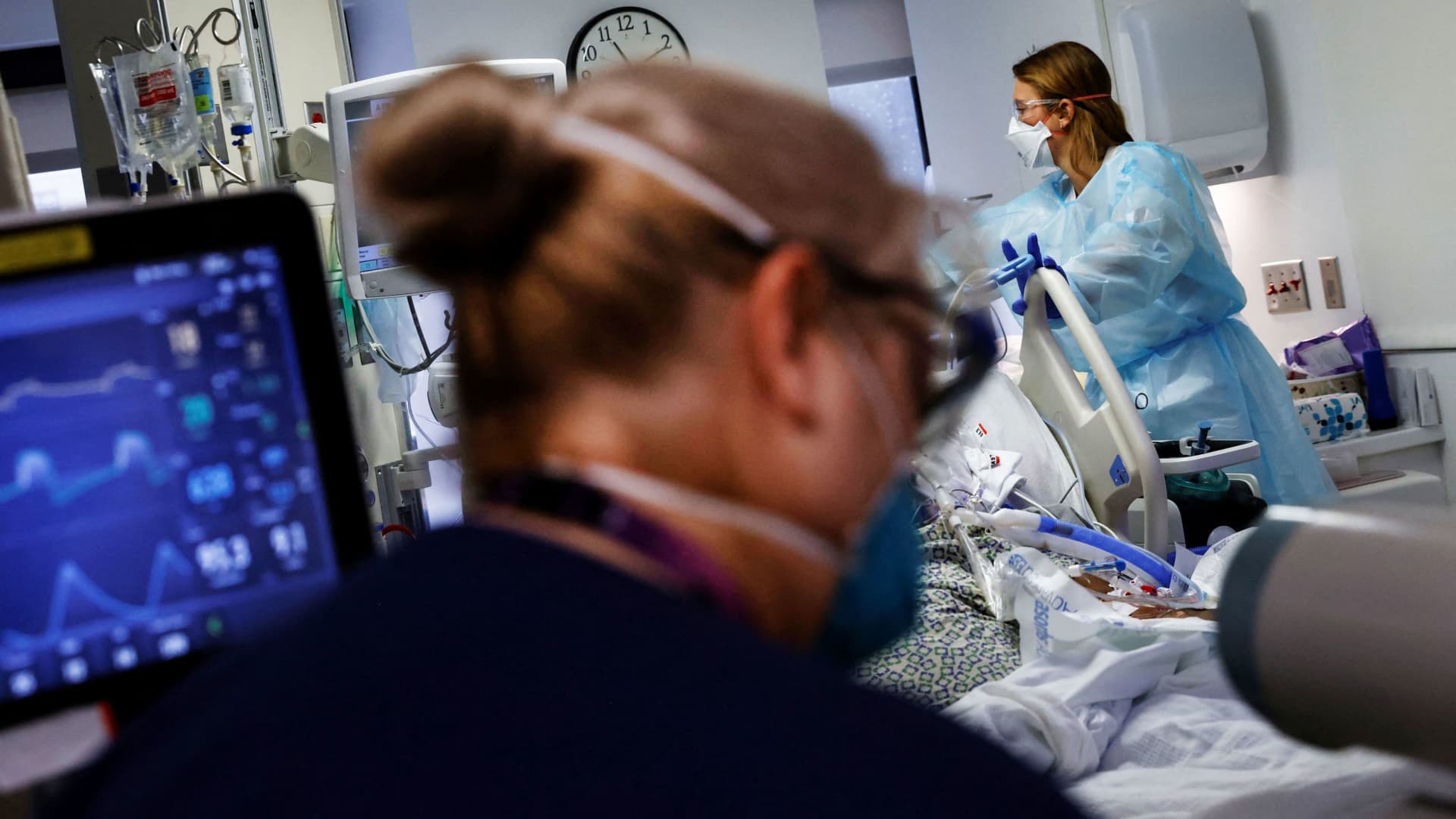Moderna says redesigned Covid vaccine produced stronger immunity against omicron than current shots
A 50-microgram dose of Moderna's new vaccine doubled the antibodies against the omicron variant six months after administration.

A healthcare worker fills a syringe with Moderna COVID-19 vaccine at the Giorgio Companies site in Blandon, PA where the CATE Mobile Vaccination Unit was onsite to administer Moderna COVID-19 Vaccines to workers, April 14, 2021.
Ben Hasty | MediaNews Group | Reading Eagle via Getty Images
Moderna on Tuesday released clinical data demonstrating that a new version of its Covid-19 vaccine that targets several mutations produced a stronger immune response against the major virus variants, including omicron and delta, than the company's current shots.
The biotech company's redesigned vaccine targets nine mutations found in the beta Covid variant, as well as the original strain of the virus that first emerged in Wuhan, China, in late 2019. Four of the mutations targeted by the updated vaccine are shared with omicron. Moderna and Pfizer are developing new shots that target multiple virus variants in the hope of producing vaccines that provide longer-lasting protection against infection.
The current vaccines were developed to recognize the spike protein, which the virus uses to invade human cells, of the Wuhan strain of Covid. But the more the spike protein has evolved, the less likely the antibodies produced by the vaccine are able to recognize the virus and fight it, which reduces the efficacy of the shots. Two doses of the original vaccines still provide strong protection against hospitalization, though effectiveness against severe illness also has dropped. Third shots of the current vaccine also boost protection against infection and hospitalization.
A 50-microgram dose of Moderna's new vaccine doubled the antibodies, which block the virus from infecting human cells, against the omicron variant six months after injection compared with the original booster at the same dosage, the data indicated. The updated shot also increased antibody levels against the delta variant six months after injection, though they were lower than the response observed with omicron and did not show superior results in comparison to the original booster. The data has not undergone peer review by outside scientists.
The most common side effects of the updated 50-microgram shot were injection site and muscle pain, fatigue and headache, according to the data.
The clinical trial included 895 participants who received a single booster dose of the updated shot with either a 50-microgram or 100-microgram dosage. The average age of the participants was about 50 years of age, 56% of whom were female. Most of the trial population was white, while 13% were Hispanic and 6% Black in the group that received the 50-microgram dose.
Moderna is developing an additional vaccine that includes the Wuhan strain and 32 mutations present in the omicron Covid variant. CEO Stephane Bancel said that shot is the company's lead candidate for a fall booster in the Northern Hemisphere, which includes the U.S. and Europe. The company expects initial data on that shot in the second quarter of this year.
Bancel, in a statement, said the data on the shot with the beta variant demonstrates that updating the vaccines to target mutations is the right strategy to fight Covid moving forward.
The Food and Drug Administration's top vaccine official, Dr. Peter Marks, told the agency's advisory committee earlier this month that the U.S. has until June to decide whether new Covid shots that target mutations are needed ahead of an expected wave of infection in the fall.
However, some FDA committee members were skeptical that new shots are needed right now, noting the current vaccines remain effective at preventing severe illness. Federal officials told the committee that Moderna, Pfizer and other vaccine makers are not currently coordinating their clinical studies on redesigned shots, which could complicate the process of selecting the most effective vaccine for the fall.
Several FDA committee members said public health authorities need to develop a unified approach to adopting a new formula for the Covid vaccines, similar to the process for selecting new flu shots every year, in order to target the strain that is most prevalent.
"At some level, the companies kind of dictate the conversation here," Dr. Paul Offit, a committee member, said during the April 7 meeting. "You often hear that the company now has an omicron-specific vaccine, or vaccine they can now link with the influenza vaccine. It shouldn't come from them, it really has to come from us."
However, developing new shots to target Covid mutations could prove challenging, given how quickly the virus is evolving. Trevor Bedford, a virologist at the Fred Hutchinson Cancer Research Center, told the FDA committee that the Covid virus is evolving two to 10 times faster than the flu, depending on which strain of the latter virus is used for comparison.

 Lynk
Lynk 
































